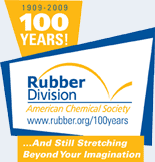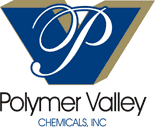![[ Visit ACS Rubber Website ]](images/logo.jpg) |
|
Centennial Elite SponsorsBecome a Centennial Elite Sponsor |
135 New alternatives to ZnO in natural rubber vulcanizationThursday, October 15, 2009: 8:00 AM
328 (David L. Lawrence Convention Center )
Zinc oxide is a widely used compound in rubber industry due to the excellent properties that shows as activator for sulphur vulcanisation. Despite its superior characteristics, there is an increased concern about its environmental effects and several research studies have been carried out in order to reduce the ZnO levels in rubber compounds or substitute it. Our approach consists of adjusting the vulcanization recipe (carbon black, accelerators) with a proprietary product that acts as real vulcanization activator. To give insight to the reaction mechanism we have tested the approach using model compound vulcanization (MCV) with squalene as a model molecule for natural rubber and CBS. The concentration of ZnO (blank recipe) and the propiertary product (new recipe) was kept at 5 phr. The results showed that the use of the new recipe nor alter the kinetics on the vulcanization, neither the cross-link degree achieved, calculated as the total amount of crosslinked squalene formed. Thus, this new compound demonstrated a potential use as alternative of ZnO in natural rubber vulcanization using sulfenamides as accelerators. More tests are being carried out to study the influence of such compound on the vulcanization of different rubber types and in thiuram mediated vulcanization.
|









